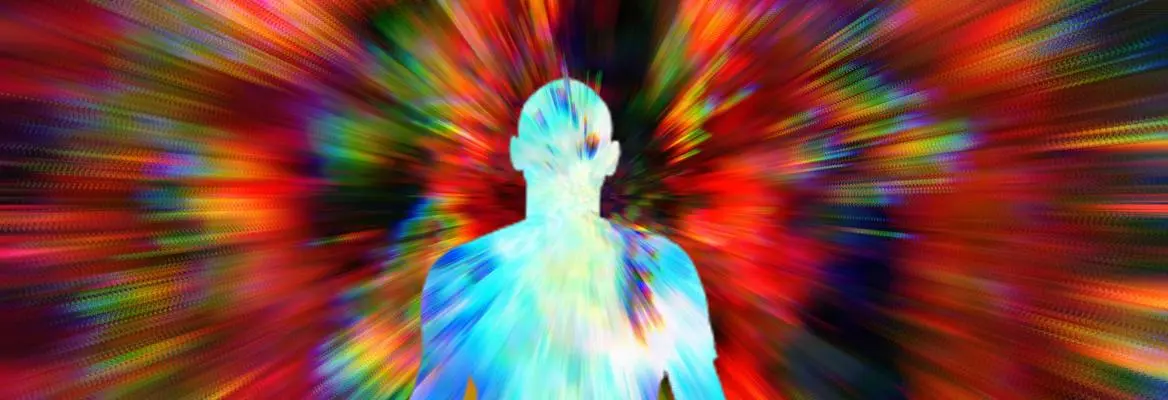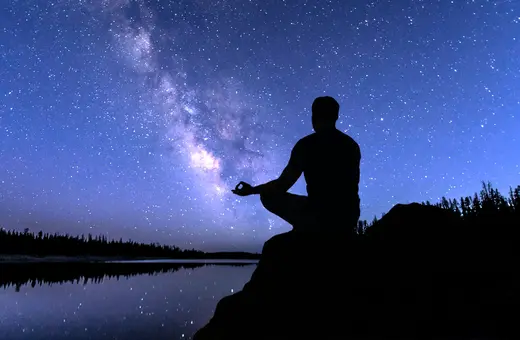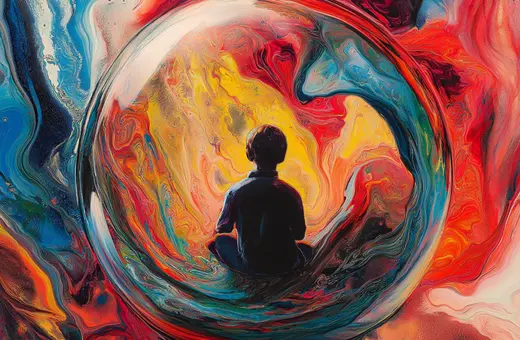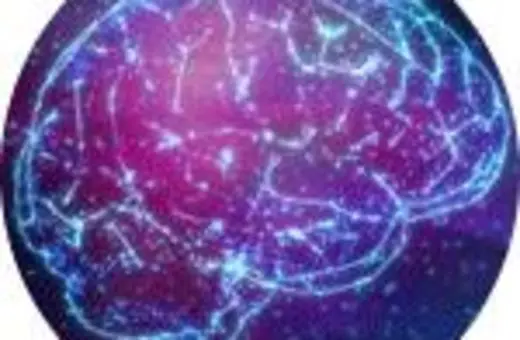Only recently has the topic of psychedelics fully broken through into the public consciousness. An exciting area of new enquiry for scientists and philosopher alike, we are now beginning to understand how they can be used to help us solve mysteries regarding the nature of life and reality. In this article, John Vervaeke explores the transformative powers of psychedelics, arguing that they provide the possibility for ‘self-transcendence’; a state which brings us closer to reality.
The question as to whether the use of psychedelics can bring us closer to reality depends on what we mean by the use of psychedelics, and what we mean by the perennially vexed question as to what reality really is. I will be making some important relevant distinctions. One is between the phenomenology of a mental state or process and its cognitive functionality, i.e. how does it help to gather knowledge about the world. Another distinction is between a psychedelic experience and a mystical experience. Along the way I will be distinguishing between knowledge and wisdom. From these distinctions I will build an argument that psychedelics within the appropriate context can afford self-transcendence which is an integral dimension of wisdom. Wisdom is the virtue (beliefs + skills + perspectives + character traits) that empowers one to cut through self-deception, zero in on relevant information, shape one’s agency to what is relevantly real to solve otherwise complex and messy problems. I will then argue that this is a plausibly good measure of getting closer to reality, and that we should prefer it to claims that psychedelic and/or mystical experience give us factual knowledge about the fundamental nature of reality. I will endeavor to steer between a position that simply rejects altered states of consciousness as subjective and illusory and a position that considers them a direct and indubitable perception as to the true nature of reality.
 SUGGESTED READING
Psychedelics and the hard problem of consciousness
By Jussi Jylkkä
SUGGESTED READING
Psychedelics and the hard problem of consciousness
By Jussi Jylkkä
Psychedelic means mind disclosing. A psychedelic experience is one that reveals some aspect or dimension of the mind that has been hidden by our default normal state of consciousness and self-awareness. This disclosure can be caused by ingested chemicals, but it can also be caused by breathing practices, chanting practices, mindfulness practices, etc. Realizing, within a flow state, that one’s everyday consciousness and cognition were being distorted by a narrative egocentrism and that one can be more at one with the environment, is therefore a psychedelic experience. It carries the potential for self-transcendence by affording us the ability for a systematic kind of insight. In most ‘Aha! moments’ we realize, and thereby transcend, an inappropriate framing of a particular problem. We may say “oh I thought she was angry, but I just realized that she is afraid, and I have been misinterpreting her actions.” However, psychedelic experiences have the potential for an insight into a family of problems, e.g. “so much of my experience is being distorted by a narrative egocentric framing, I could be more at one with the world.” We get an insight that integrates a lot of experiences and that reframes them in concert. This can, in turn, provoke a serious challenge to our sense of self because large scale patterns of how we interpret our actions are being reformulated.





















Join the conversation